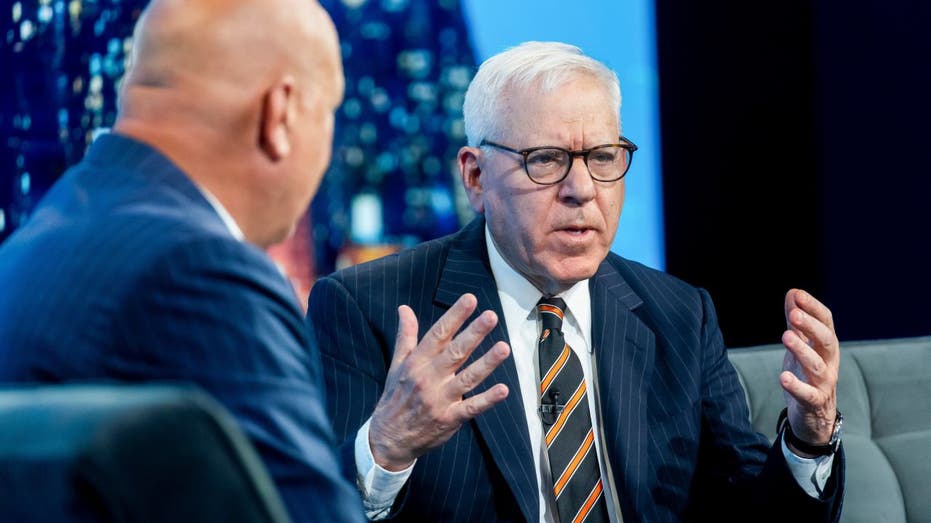Billionaire warns interest on debt topping defense spending a sign 'the country is in trouble'
David Rubenstein said that members of Congress and the public won't recognize the debt is a problem until there's a "calamity"
The presidency is a great job but comes with a lot of challenges: David Rubenstein
Carlyle Group co-founder Dave Rubenstein discusses his book, The Highest Calling, the countrys debt crisis, one-term presidents and his donation to the National Zoo.
David Rubenstein, the billionaire co-founder of the Carlyle Group, warned that the cost of servicing the federal government's massive debt amid growing budget deficits is pushing the U.S. towards financial trouble.
During an appearance on FOX Business Network's "Cavuto: Coast to Coast" on Tuesday, host Neil Cavuto said that the more than $35 trillion national debt and swelling budget deficits aren't an issue at the front of voters' minds and whether it's "like a grenade that you're taking the cap off."
"It's not, until it is," Rubenstein said of the debt being a problem. "In other words, at some point, people in Congress will say we've got to deal with the debt. And when they finally recognize it's a big problem and a kind of calamity comes about, then people will feel more interested in it."
"Right now, people are more interested in other things, inflation or jobs, but not the debt. But the debt is something that historically, when you're paying more in interest on your debt than your defense budget, the country is in trouble," he added.

David Rubenstein, billionaire co-founder of the Carlyle Group, warned that the surging interest costs on the national debt are a sign (Michael Nagle/Bloomberg via Getty Images / Getty Images)
Earlier this year, the federal government's net interest payments on the national debt — essentially the cost of servicing the previously accumulated debt — surpassed federal spending on the Department of Defense as well as Medicare spending.
Through August, the federal government spent $870 billion on debt service in the first 11 months of fiscal year 2024, according to a preliminary estimate by the nonpartisan Congressional Budget Office (CBO). That's $227 billion more, or 35%, than a comparable period a year ago with the increase occurring because of higher interest rates.
For comparison, spending on Medicare totaled $847 billion while the Department of Defense's spending totaled $753 billion in the fiscal year through August. That leaves debt interest as the second-largest expenditure category in the federal budget, trailing only Social Security, which spent a little more than $1.3 trillion in that period.
Cavuto noted that the two leading presidential contenders — former President Trump and Vice President Harris — have each put forward plans calling for tax cuts or expanded tax credits, without offering significant plans to curb budget deficits.
US NATIONAL DEBT TO SURGE TO RECORD LEVELS WITHOUT REFORM, RAISING PROSPECT OF DEBT CRISIS
Rubenstein responded by noting that when Congress "gets around to actually dealing with this next year, you'll have to pay for some of these things."
"We're running about a $2 trillion annual deficit — $2 trillion out of about $6.5 trillion. It's hard to keep doing that and thinking that at some point, something isn't going to go wrong," he explained. "There's an old saying in economics, if something can't keep going on forever, it won't. And I think at some point we just can't keep doing that."




















